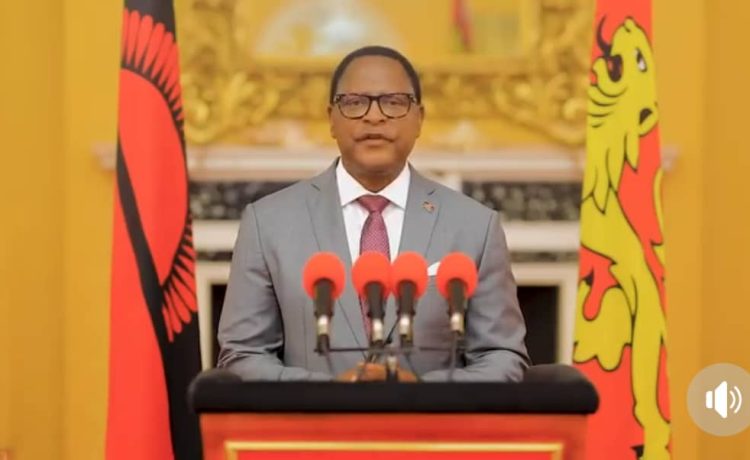In a national address delivered yesterday, December 11, 2024, President Lazarus McCarthy Chakwera outlined the struggles currently facing Malawi, particularly regarding hunger, economic difficulties, and fuel supply shortages. He called upon citizens to remain strong as he detailed efforts being made by his government to address these pressing issues and to establish a foundation for recovery.
President Chakwera began by highlighting the alarming food insecurity crisis, which has left over 5.7 million Malawians in dire need due to sustained drought and inadequate harvests. He emphasized the urgency of the situation by announcing an extensive maize distribution initiative aimed at the most affected regions.
Areas such as Chitipa, Karonga, Nkhatabay, and Mangochi have received significant quantities of maize, with additional provisions allocated for regions particularly impacted by hunger, including Neno, Mwanza, and Blantyre. To assist vulnerable urban households, distribution of rice and other essential staples has commenced in cities like Lilongwe.
Acknowledging the vital role of international partners in these efforts, Chakwera expressed gratitude for the financial assistance received from countries such as Netherlands, Sweden, the United States, United Kingdom, Japan, France, South Korea, Germany, Iceland and Norway, Swwitzerland, and the African Development Bank, all of whom have rendered help facilitated through the World Food Programme. He urged for ongoing support from the global community, underscoring the importance of solidarity in confronting this humanitarian crisis.
Addressing the economic strain on the nation, the President explained the government’s implementation of austerity measures designed to conserve resources while ensuring equitable public spending including the elimination of VAT exemptions on vehicle imports for senior government officials, including himself, the Vice President, Cabinet Ministers, and other top officials. This decision is intended to free up funds for crucial sectors including education, healthcare, and infrastructure.
Chakwera reaffirmed his commitment to alleviating the economic burden on ordinary Malawians, portraying the austerity initiatives as a testament to leadership and solidarity. “The priority is you, the citizens who elected me,” he stated. “We who are in government are not the priority.”
In addressing the fuel and foreign exchange shortages, the President announced a significant development: a Government-to-Government agreement with the United Arab Emirates aimed at securing a consistent fuel supply, bolstered by new legislation passed in Parliament. He revealed that a delegation from the UAE is scheduled to visit Malawi in January 2025 to finalize the technical aspects of this arrangement, indicating a positive step forward in resolving the nation’s energy concerns.
However, Chakwera did not shy away from acknowledging the daunting challenges that lie ahead. He pointed out that adverse weather conditions have intensified crises, resulting in the displacement of over 48,000 individuals and damage to numerous homes. “We are not out of the woods yet,” he warned, emphasizing the need for continued international aid and a collective spirit of resilience.
Looking forward, the President stressed the necessity of long-term reforms to enhance Malawi’s resilience against recurring crises. His administration aims to revitalize fundamental sectors such as agriculture, tourism, and mining to stimulate job creation and sustainable economic growth. Additionally, he pointed out the significance of pursuing international labor export opportunities, which he believes are critical to broadening income sources for Malawians.
Chakwera’s address blended realism with determination, recognizing the scope of the ongoing crises while reaffirming a commitment to addressing them. He urged the Malawian people to maintain unity and patience as the government rolls out its strategies, promising to provide further updates in his State of the Nation Address scheduled for February 2025.













